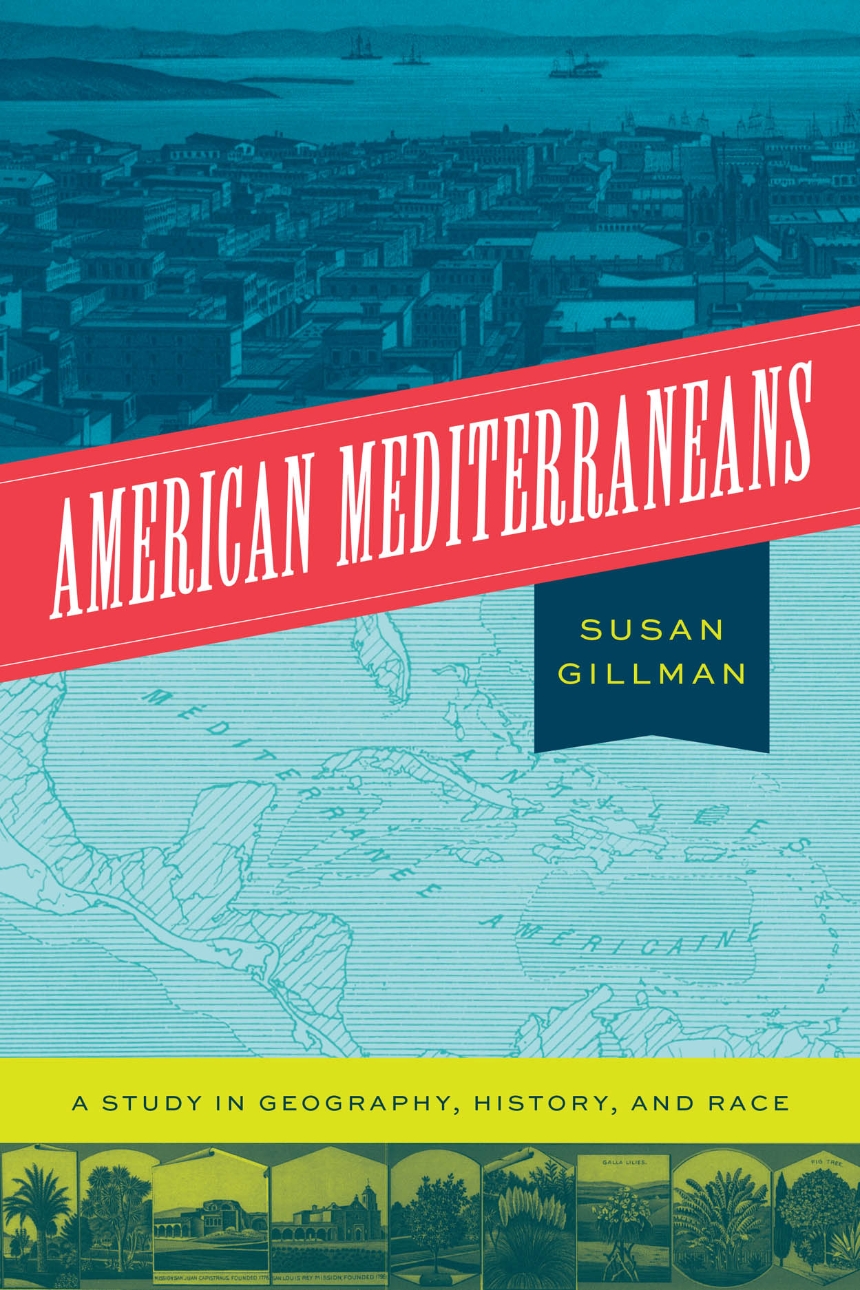American Mediterraneans
A Study in Geography, History, and Race
9780226819662
9780226819648
9780226819655
American Mediterraneans
A Study in Geography, History, and Race
The story of the “American Mediterranean,” both an idea and a shorthand popularized by geographers, historians, novelists, and travel writers from the early nineteenth century to the 1970s.
The naturalist Alexander von Humboldt, visiting the Gulf-Caribbean in the early nineteenth century, called it America’s Mediterranean. Almost a century later, Southern California was hailed as “Our Mediterranean, Our Italy!” Although “American Mediterranean” is not a household phrase in the United States today, it once circulated widely in French, Spanish, and English as a term of art and folk idiom. In this book, Susan Gillman asks what cultural work is done by this kind of unsystematic, open-ended comparative thinking.
American Mediterraneans tracks two centuries of this geohistorical concept, from Humboldt in the early 1800s, to writers of the 1890s reflecting on the Pacific world of the California coast, to writers of the 1930s and 40s speculating on the political past and future of the Caribbean. Following the term through its travels across disciplines and borders, American Mediterraneans reveals a little-known racialized history, one that paradoxically appealed to a range of race-neutral ideas and ideals.
The naturalist Alexander von Humboldt, visiting the Gulf-Caribbean in the early nineteenth century, called it America’s Mediterranean. Almost a century later, Southern California was hailed as “Our Mediterranean, Our Italy!” Although “American Mediterranean” is not a household phrase in the United States today, it once circulated widely in French, Spanish, and English as a term of art and folk idiom. In this book, Susan Gillman asks what cultural work is done by this kind of unsystematic, open-ended comparative thinking.
American Mediterraneans tracks two centuries of this geohistorical concept, from Humboldt in the early 1800s, to writers of the 1890s reflecting on the Pacific world of the California coast, to writers of the 1930s and 40s speculating on the political past and future of the Caribbean. Following the term through its travels across disciplines and borders, American Mediterraneans reveals a little-known racialized history, one that paradoxically appealed to a range of race-neutral ideas and ideals.
208 pages | 26 halftones | 6 x 9 | © 2022
History: American History
Literature and Literary Criticism: American and Canadian Literature
Reviews
Table of Contents
List of Figures
Preface: The Strange Career of the American Mediterraneans
Introduction: Beginning with Humboldt
1 American Mediterraneans: A Space-Timeline
2 Nineteenth-Century Geographers and Their Mediterraneans
3 1890s California-Pacific Mediterraneans
4 1940s Gulf-Caribbean Mediterraneans
Epilogue: Ending with Braudel
Acknowledgments
List of Abbreviations
Notes
Index
A gallery of figures follows page 000
Preface: The Strange Career of the American Mediterraneans
Introduction: Beginning with Humboldt
1 American Mediterraneans: A Space-Timeline
2 Nineteenth-Century Geographers and Their Mediterraneans
3 1890s California-Pacific Mediterraneans
4 1940s Gulf-Caribbean Mediterraneans
Epilogue: Ending with Braudel
Acknowledgments
List of Abbreviations
Notes
Index
A gallery of figures follows page 000
